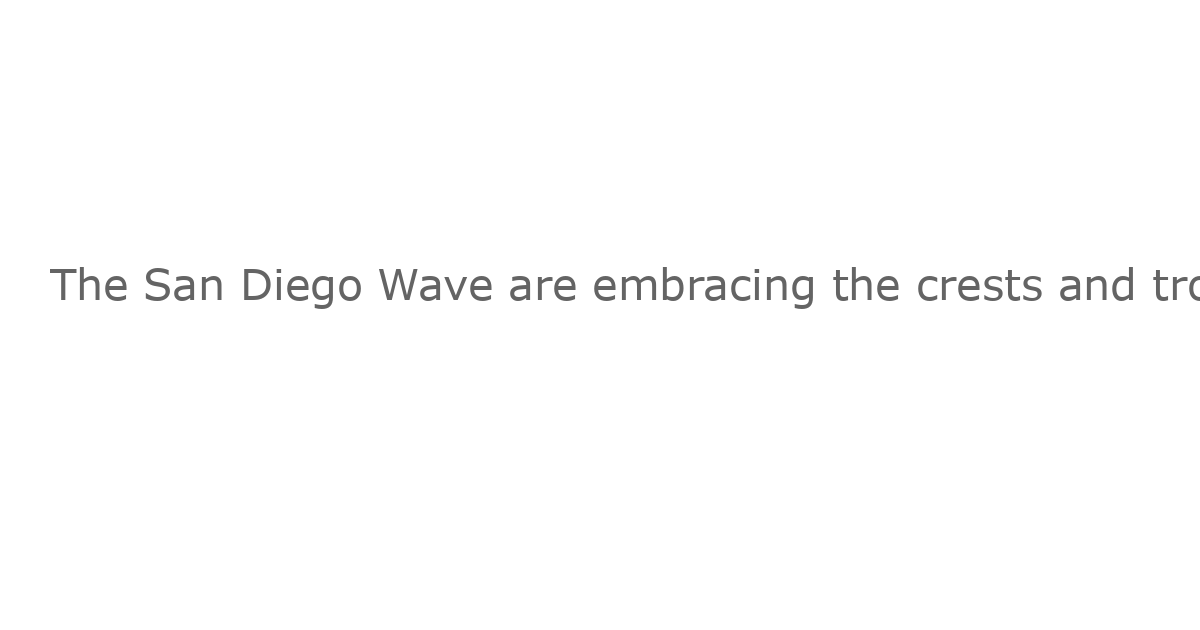San Diego Wave midfielder Kenza Dali likes to swim in the ocean on Thursdays. One day after training in July, the 34-year-old French international waded out into the Pacific Ocean, as she normally does, but this time was different. A rip current carried her away, and not even Dali’s elite athlete-level strength could steady her. Before panic took hold, Dali remembered what her teammate, Wave defender Quincy McMahon, had told her once: when a rip current strikes, angle your body parallel to the shore and let go.
She did. Eventually, her feet grazed the sand.
Dali was grieving when the Wave called late last year, feeling herself pulled away from the sport she loved and unsure if she wanted to continue playing. She was living in Birmingham and playing for Aston Villa at the time, and her home was filled with nothing but memories of the person she’d lost. (Dali was not comfortable naming the person out of her desire for privacy.)
San Diego Wave head coach Jonas Eidevall was familiar with Dali from their time together in the Women’s Super League in England. Dali was first with Everton and then Aston Villa when Eidevall coached Arsenal from 2021 to 2024. She was planning to sign with a different NWSL team, one closer to France than Southern California, but the more she thought about it, the more the distance from that particular shore appealed to her.
“It was really like my last bit of, like, it’s all or nothing, clearing my head and having a different environment,” Dali told *The Athletic* from the San Diego Wave training ground in July.
Such has been the way of the Wave this season in many ways: riding the crests and the troughs, figuring out when to surrender to the rip currents. The club entered its fourth season in the National Women’s Soccer League (NWSL), desperate to bounce back from a 10th place finish the year prior, which might have been understandable for a new club had it not been for the impression they made their first two seasons in the league. As an expansion side in 2022, the Wave made history by reaching the playoffs in their inaugural year, falling to the Portland Thorns in the semifinals. They will play against the same team today in the NWSL quarterfinals.
Back then, the roster glistened with U.S. women’s national team stars Alex Morgan (who won the Golden Boot that year), center back Naomi Girma (who was named both Rookie of the Year and Defender of the Year) and midfielder Jaedyn Shaw, who signed with the club when she was 17 years old. All three departed the Wave in a span of three months.
Former England national team player and Manchester United manager Casey Stoney led the team at the time. Her staunch defensive philosophy was compelling the first two seasons; in 2023, they finished top of the table and secured the NWSL Shield, given to the club with the most wins in the regular season. But the trough came in 2024.
Despite winning the NWSL Challenge Cup to kick off the season, the inspiration that once drove the team’s style of soccer puttered out, and suddenly, they were face-to-face with a seven-game winless streak. In June of that year, the club fired Stoney, a move that was still widely considered abrupt despite the team’s form at the time. A perplexing duo of interim managers replaced her: Paul Buckle, once an interim assistant coach for the Wave in 2022, and former U.S. men’s national team forward Landon Donovan, for whom the Wave marked his foray into managing a women’s side. “Things were d* s*,” Canadian goalkeeper Kailen Sheridan, one of three players on the roster who have been with the club since its inception, said of that season. Speaking to *The Athletic* one August afternoon after training, the 30-year-old Olympic gold medalist was candid about the highs and lows of the Wave’s short history in the NWSL.
The high turnover last year wasn’t contained to the coaching staff. Morgan announced her retirement and pregnancy with her second child on Sept. 5, and played her final game three days later. She became a minority investor in the club in May this year. In October, the Wave came under new ownership as the Levine Leichtman family completed its purchase of the club from former owner Rob Burkle for a then-record valuation of $120 million. By then, the club had already found and hired a new sporting director general manager in Cami Ashton, who was last with the Kansas City Current in a similar role. A former NWSL player, Ashton was charged with reconstructing the club’s culture amid the turbulence and laying the groundwork for sustainability. There was much to be done on the culture front. Last October, five former San Diego Wave employees filed a lawsuit against the club over multiple allegations of discrimination, retaliation, wrongful termination, and sexual harassment. The claims in their case followed allegations first raised by one of the named complainants, Brittany Alvarado, against Jill Ellis, the former Wave club president who stepped down in December. Alvarado accused Ellis of creating a hostile work environment, and Ellis later filed a defamation lawsuit against her.
“Nothing is ever constantly up,” Sheridan said. “There was a lot of internal reflection and player reflection and challenging the ownership, challenging the club itself to (ask) ‘What do you want to be? Do you want to just be here, be present, or do you want to be a competitive winning team?’” Ashton was central to those reflections, drawing from her own experience as a professional soccer player to inform her approach to the club’s rebuild. The club hired former German national team player Anja Mittag as an individual development coach to ensure the growth of the younger players and acclimate others who are new to the league. On Mondays, the Wave trains with a boys’ club team. Ashton also facilitated a renovation of the Wave’s training facility, which they lease from the San Diego Surf, a youth club. They hired a full-time chef, improving the catered food they once relied on, and added dedicated rooms for meeting and hanging out. Hot tubs are coming soon.
Before pivoting to NWSL front offices, Ashton worked as a sports scientist and performance analyst. It took time for intergenerational dynamics to gel. Dali can still recall moments from her career when she was the young renegade, figuring herself out with each game, and the importance of growing through that. She sees a lot of herself in her Wave teammate Gia Corley, a 23-year-old midfielder who joined the Wave in January from Hoffenheim in the Frauen Bundesliga. Corley is eligible to represent either the German or U.S. women’s national teams. “She’s so talented, but it’s risky,” Dali said of Corley. “She plays with fire, but it’s her quality and she’s young. You can’t take that. So I’m like, ‘Do your thing.’” Corley will often apologize to Dali when she loses the ball, but said part of the reason she gambles with the ball is because she trusts her to clean up after her. “I played crazy in PSG (Paris Saint-Germain) because I had (two-time Olympic silver medalist with Sweden) Caroline Seger behind me. I can lose the ball anywhere on the pitch and she’s gonna cover me, and this is how I expressed myself.” Now it’s her job to do the same for Corley and the other young players on the Wave, while also trusting them in turn.
Though their record didn’t improve significantly as the regular season concluded, the Wave started to look more like themselves. It helped that 20-year-old Brazilian forward Dudinha, whom the club signed in July, arrived from São Paulo FC and was activated. She’s played 10 games, seven of which she started, and has already scored five goals, equal to Dali and Cascarino as the team’s leading goal scorers this season. The Wave’s highs and lows this year make it difficult to know which version of the team will show up at Providence Park on Sunday. But they are rebuilding momentum — a very different kind of trajectory from their origin story as an NWSL team, but one that could take them just as far in the long run.
Fuente: https://sports.yahoo.com/article/san-diego-wave-embracing-crests-134605856.html

